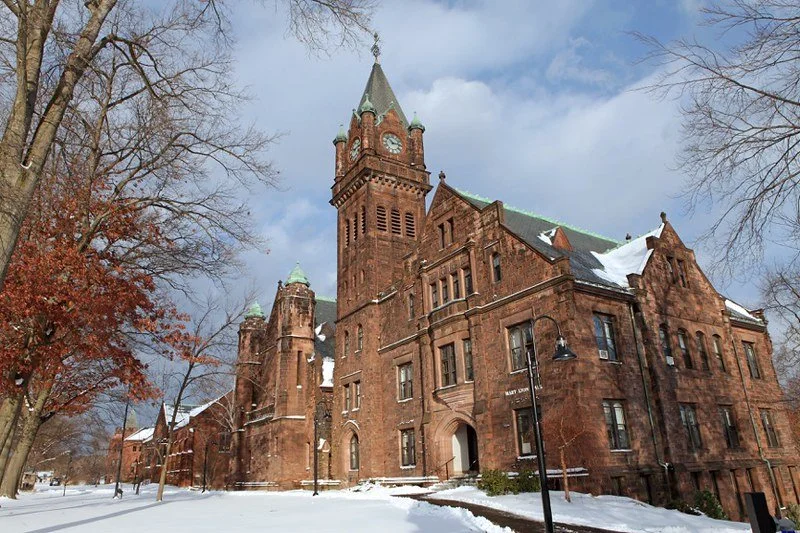Photo by Kannille Washington ’28
By Kannille Washington ’28
Staff Writer
On Feb. 11, a group of Mount Holyoke students crammed onto a bus headed to Boston for a day of climate justice lobbying at the Massachusetts State House. They planned to meet with various senators and representatives to share their support for different bills on climate policy. The trip was organized by the Growing Vines Collective, a BIPOC-centered student collective advocating for environmental justice and food sovereignty, which received a grant from the Miller Worley Center.
The drive was about two hours of uncertainty over what the event would look like, as many on the trip had never attended before. Cindie Huerta-Velazquez ’25, a member of the Growing Vines Collective and the main organizer of the trip, acknowledged the scope of the event.
“The current political climate in the United States has instilled some urgency in many students, and we saw that with the event RSVPs doubling in the weeks after the inauguration,” Huerta-Velazquez said in an email to Mount Holyoke News.
Despite nervousness from attendees, there was no disappointment as students arrived at their first destination, the Old West Church, which was packed to the brim with young students, ranging from high school students to college undergraduates, from west to east Massachusetts.
The Massachusetts Youth Climate Coalition, which hosted the event, provided a pizza lunch and asked all students to meet with their group leads to discuss their meeting times, priority points, and what questions to ask legislators that would encourage them to co-sponsor these bills. The group established six bills “priority bills”: “Provide ‘Sunlight’ to State Government,” “Air Quality,” “Preventing Gas Expansion,” “Polluter Pay Climate Superfund,” “Interdisciplinary Climate Action” and “Farm to Schools.”
As the day went on, many groups received notification that their meetings with officials were cancelled, postponed or that a stand-in congressional staff member would sit with the groups. In the midst of all the chaos, this was a bit of a let-down for some students. However, many students found opportunities to help their peers where they needed extra support in their lobbying.
After lunch, group leaders led workshops in songs and chants, with everyone promptly leaving the church to march towards the State House afterwards. The march was not very lengthy, but notably cheerful as the megaphone passed around the crowd for people to pick their favorite chant and lead the group. At the State House, the crowd continued chanting while they waited for the news outlets to catch up.
Various students made speeches and shared statements to reporters. Then, everyone split off to attend their respective meetings for the rest of the day.
“There is power in numbers and all our voices deserve to be heard. It was wonderful to have the space and place to have them heard,” Huerta-Velazquez said.
Abigail McKeon ’26 contributed fact-checking.







